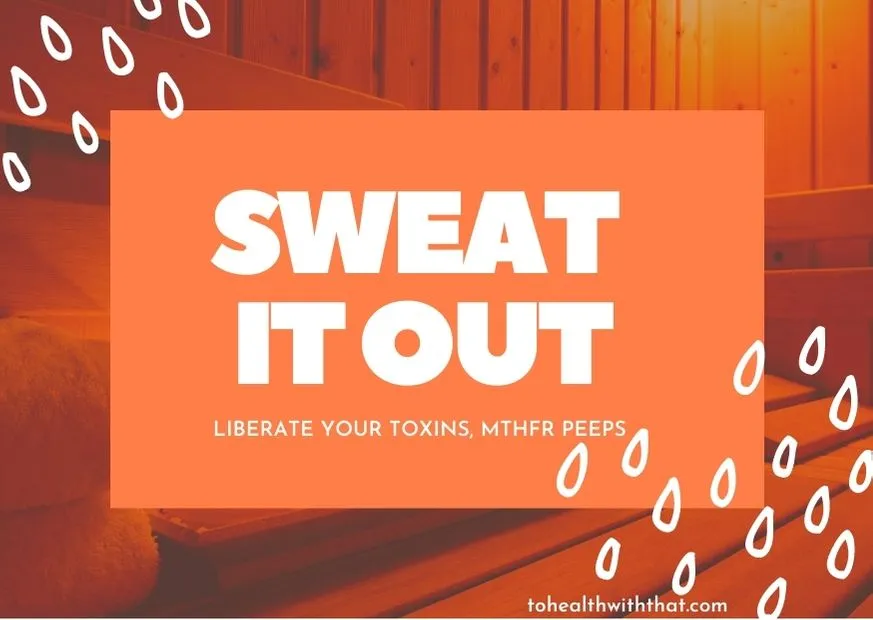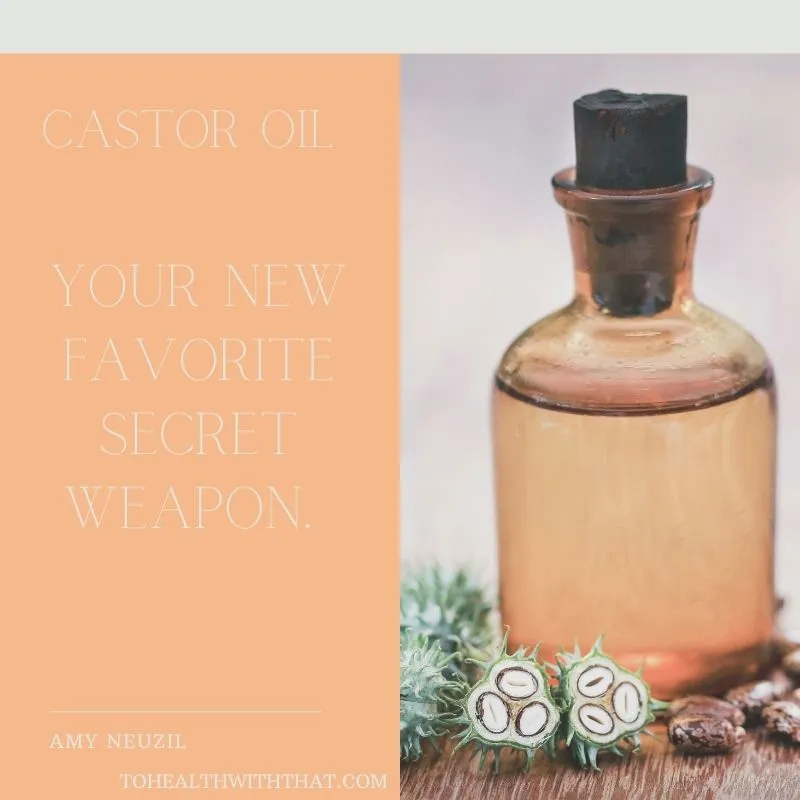The keyword here is GENTLE. Why? Anybody can overdo detox, but trouble is especially easy to find when you have a known genetic issue affecting detoxification. Pushing too hard is miserable, but detoxing in small steps is a great strategy to help you feel your best.
Gentle Detox for MTHFR for Life – The MTHFR Lifestyle.
Detoxification is a fact of life for everybody – we live in a world of chemicals, plastics, air pollution, water pollution and strange pretend food. All of those things need to be dealt with by your body. With MTHFR issues we have an added chink in our armor, but this is actually an ongoing issue for everyone living in the modern world. There are some things to help.
Here is Why I Don’t Generally Suggest “Detox Kits”
Lot of companies sell detox kits, plans and programs and among those some are great and some are less great but the biggest problem with detox kits is that they work. I know, that doesn’t sound like a big problem but it actually can be.
MTHFR folks run the risk of liberating more toxins into their bloodstream than their body can deal with at once and so doing more harm than good. This feels bad and more importantly, it can actually do damage.
Amy Neuzil, tohealthwiththat.com
Generally, detox kits include a supplement that pushes your liver to eliminate more toxins – some combination of milk thistle, globe artichoke, dandelion, or any number of herbs that stimulate liver function. These supplements usually have a pretty big impact on liver function. Also, there is often a fiber source somewhere in the detox – either within the suggested diet or in another supplement. This is to catch toxins as they’re being eliminated so you don’t reabsorb them, because that is a thing humans do. Also, typically some kind of modified diet that reduces the number of toxins you’re taking in and often reduces calories to free up some metabolic space for your body to focus on actually eliminating toxins, rather than dealing with food intake.
Detox kits are made for people who don’t have any genetic blocks to their detoxification pathways, and that isn’t MTHFR folks. MTHFR folks run the risk of liberating more toxins into their bloodstream than their body can deal with at once and so doing more harm than good. This feels bad and more importantly, it can actually do damage.
This isn’t to say that you will never be able to do a detox, just that you should be deep within your MTHFR journey before you try it. Optimizing your methylation pathways first and making sure you understand your body’s signals that it gives you when you’re struggling with detox before you push it that hard. We’ll talk about that in a future post.
If Detox Kits Are Too Strong, Then What Do MTHFR Folks Use?
Great question. Let’s talk about it because we have a lot of incredible detox options that don’t have quite so much potential to get us into a mess.
Sweat It Out
We talked a bit about the conflicting research on sweating it out here, and I stand by my statement that clinically, I see people make major strides forward in their health journey by using this simple technique. Sweating is easy for anybody with any financial means to accomplish because it can be done so many ways and literally anything that helps you work up a sweat counts. This can be in a sauna, an IR sauna, a hot bath, with vigorous exercise, in a sweat lodge, or even sitting in a hot car in the summer. It doesn’t have to be fancy, although fancy can be wonderful.

In terms of using sweating therapeutically, it has to be regular. Sweating frequently is the key because it liberates only a tiny amount of toxins, especially heavy metals, each time. Here are some tips:
- Sweat regularly – try 3 times a week for 10 minutes to start and increase if you can.
- Ditch the antiperspirant – if you’re trying to sweat it out, it doesn’t make any sense to also block the sweating. Switch to a deodorant. Also, antiperspirants use aluminum (heavy metal and also toxic) to block the sweat ducts so in general, they’re a good thing to get rid of.
- Shower after – I”m sure this goes without saying but shower off the sweat when you’re done (unless you sweat in a hot bath). Not just for hygiene and everyone else’s happiness, but also because we do absorb things from our skin so if you leave it there, you might end up reabsorbing the toxins you worked so hard to eliminate.
- Hydrate – sweating uses water and also electrolytes, so make sure you’re replacing what you use.
Castor Oil
Castor oil is one of my very favorite tools because it’s supremely easy, inexpensive, and extremely effective for detox but also for pain relief. There is recorded use of castor oil for at least 3000 years and anything that survives that many years only does it because it works. The primary molecule in castor oil, ricinoleic acid, is a strong anti-inflammatory and is small enough to penetrate beyond the deep dermis of the skin and into the lymphatic channels.

Lymph is something we don’t talk about nearly enough, but it is another method your body has for delivering toxins to the liver to be eliminated and removing toxins from the tissues.
Castor oil is beneficial for a number of disease and conditions (see the link above), but I like it best for the everyday benefit of detoxification. There is a more formal method of using castor oil, called a castor oil pack, but I use a lazy method – Amy’s Lazy Castor Oil Treatment. Here’s what you do.
- Get your organic castor oil. Your local health food store should have this, but if they don’t you can always order online.
- Slather it on before bed. Make sure you cover the front and back of your abdomen, especially the right side over your liver (but honestly, I do the whole thing).
- Put on your rattiest pajamas. Because they’re never coming back from this. These are now your castor oil pajamas because it’s sticky and will never wash out without a trace. The pajamas are basically just protecting your bedding at this point.
- Go to bed for the night. And sleep and sleep and sleep. Lovely.
- Shower in the morning. There may be a slight trace of oil that hasn’t absorbed in the morning, but chances are it’s all soaked in and your skin is soft as a baby’s bum. That is just a side bonus – we’re going for the detox.
That’s it – you’re done. Try to do this two to three times per week and more if you’re feeling especially toxic (if you don’t know what it feels like to feel especially toxic, read this.) Also, if you happen to have digestive pain, pelvic pain, or any other ongoing pain, you can use castor oil at night topically to that area for its antiinflammatory properties. A full list of uses can be found in this article.
Fiber and Other Gut Sponges – The Unsexiest Topic
Yeah, fiber lacks sex appeal in every sense. So does the phrase “gut sponge” if truth be told, but without it, there are even unsexier things that happen, like constipation, man boobs, and hemorrhoids. The RDA for fiber is 30 – 38 grams per day for men and 25 grams per day for women. I think all of us should shoot for about 35 grams.

- Prebiotic – soluble fibers help to nourish your microbiome, without which you would be dead inside of a minute. No joke.
- Adds bulk – which in an of itself sounds gross, but soluble fibers hold bulk and add mass to your bowels so that they can move.
- Causes movement – insoluble fiber irritates your digestive tract, which sounds like it would be a bad thing, but actually, it just reminds your intestines and colon to move things along and not let them hang out there – that’s actually a bonus.
- Binds to toxins – this is, in my opinion, the best thing about fiber – fiber grabs lots of toxic things, including detoxified estrogen, heavy metals, and chemicals, and makes sure they actually get eliminated rather than reabsorbed. This is also the benefit of gut sponges.
What is a gut sponge?
A gut sponge is anything that will perform that same function as fiber and bind to toxins in the gut without giving them the opportunity to reabsorb, so that they become eliminated. They are also sometimes called “binders” or “adsorbers.” They act like a sponge moving through your digestion that soaks up all the bad stuff. Other gut sponges (other than fiber, I mean) include:
- Activated charcoal
- Clay – aluminosilicate clays including bentonite, montmorillonite, zeolite.
- Diatomaceous earth
- Chlorella
- Chlorophyll
- Glucomannans
- Tannins
Quite honestly, for normal application fiber is both the easiest to take – it’s in your food, it’s easily found as a supplement, and it’s reasonably inexpensive. Some of the above binders have very specific binding properties and can be useful if you have a known toxin issue.
MTHFR is a common genetic mutation that can contribute to anxiety, depression, fatigue, chronic pain, infertility, and more serious conditions like breast implant illness, heart attack, stroke, chronic fatigue syndrome, and some types of cancer. If you know or suspect you have an MTHFR variant, schedule a free 15-minute meet-and-greet appointment with MTHFR expert Dr. Amy today.
Book Your Appointment

Thank you!
Thank you, I recently did a 3 day water fast and the detox flare was real. I know I have the mthfr mutation but was told 8 yrs ago that its no big deal. I believe its why I developed cfs. I am now not going over 17 hrs fasting which I was doing before, feeling good and eating keto. I take binders at 17 hrs (autophogy phase/detoxing ). I am going to start doing castor packs. Any thoughts on coffee enemas? Thank you for info!
Hi Chesna,
It sounds like you are doing an amazing job of listening to your body and choosing beneficial steps forward. Fabulous with the short bursts of fasting and gut binders – that’s a great plan to gently allow your body to detox and eliminate without putting yourself in crisis. Castor oil packs will support that process and over time they should help with pain and inflammation. Coffee enemas are not my favorite in routine practice for a couple of reasons – one is that you do still absorb the caffeine and it’s a pretty direct route of absorption. I’m not against caffeine, but moderation is key. The other is that I’ve seen some people end up with gut flora imbalances from using coffee enemas too regularly. So, I think it’s a good occasional tool, but not the best for regular use. Thanks so much for being here and serious kudos for doing such a great job of taking hold of your own health.
I have been taking diatomaceous earth for almost a month. I have bipolar and ADHD. my question is with taking the diatomaceous earth, will I eventually be able to get off of bipolar medication?
Hi Lauren,
Amazing that you’re taking the diatomaceous earth – it can be so beneficial. I honestly can’t say whether or not you’ll be able to (or want to) come off of your medication, but I certainly suggest working with someone who knows you closely and who can help you make the decision based on your own risks and benefits. Medication really helps some people and it isn’t always appropriate or even useful to stop it (and for some people, it’s a big relief to discontinue.) I know it’s not much of an answer, but I hope it clarifies the way I see it. Keep working on you and take baby steps. It takes time, but hopefully you’ll get to the health you want to have.